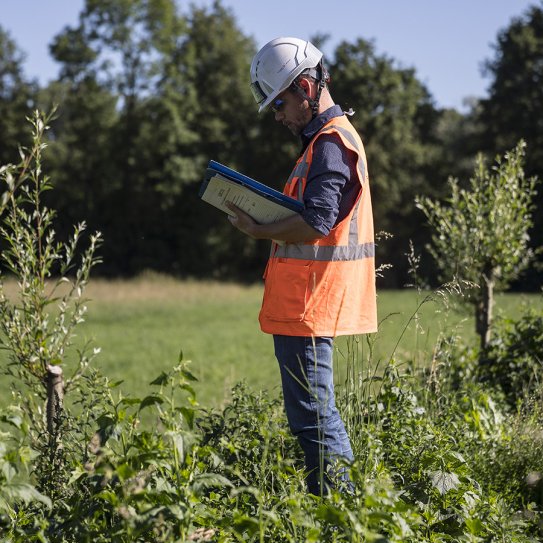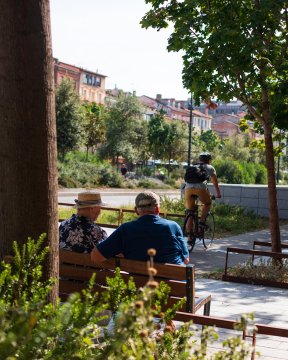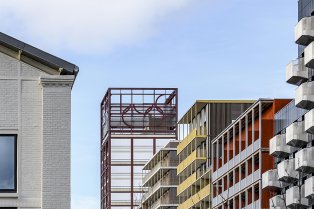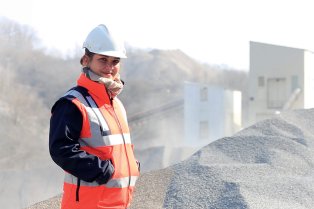Ecological restoration of the city and biodiversity protection
Preserving natural environments is an integral part of VINCI's projects, in its various roles as a concession company, developer, builder and operator. In both urban and rural areas, and at the sites of the infrastructures managed under concession, its teams are developing solutions to promote ecological restoration and protect biodiversity.

Nature in the city: from scientific knowledge to operational expertise
Renewing the link between the city and nature relies on a number of courses of action: greening of neighbourhoods, soil unsealing, the configuration of buildings and the properties of plant cover, which play an essential role in reducing urban heat islands. VINCI has been working with the scientific community for many years to address this issue, which is becoming increasingly important as a result of the climate change emergency.
As part of its “lab recherche environnement”, the Group has developed Biodi(V)strict in partnership with AgroParisTech, the first predictive tool to identify the biodiversity potential of urban construction projects. This partnership has also led to the creation of Urbalia, a start-up dedicated to integrating biodiversity and urban agriculture into urban development projects.
Building on this scientific work and in collaboration with AgroParisTech, in 2023 VINCI Construction launched Revilo®, an integrated solution for cooling urban spaces that combines action on plants, water, soil and pavements to reduce the effects of heat islands. The solution was the final winner of the VINCI 2024 Environment Awards. As part of its environmental strategy, VINCI Immobilier is also deploying urban ecological restoration solutions, such as the biodiversity corridor and "urban oases" created as part of the Universeine Athletes' Village project in Saint-Denis.

Linear infrastructure, ecological continuity and specialised expertise
For companies holding concessions for linear infrastructures (mainly VINCI Autoroutes and VINCI Highways), biodiversity challenges are mainly based on limiting the fragmentation of natural habitats during network development operations, and reducing land take. Wherever possible, efforts are being made to make infrastructures "transparent", ensure that obstacles are reversible and restore sensitive environments and ecological continuity: creation or restoration of “eco-bridges” (allowing wildlife to cross major roads), development of hydropower structures, restoration and enhancement of sites of ecological interest, seeding and planting of embankments, responsible mowing, etc. In their role as project managers and operators, concession companies respond to these challenges by working closely with environmental associations and institutions to develop, implement and monitor measures to avoid, reduce and compensate for the impact of their infrastructure on the environment.
Ecological engineering is another area of expertise for VINCI Construction, which has developed an integrated range of solutions in this field, mainly under the Equo Vivo brand. Its specialist teams are particularly involved in hydromorphological restoration and ecological restoration projects.
Ecological restoration along the motorway network
Following on from its investments to reduce the impact of motorways on the fragmentation of ecosystems, in 2021 VINCI Autoroutes embarked on a new stage in its environmental policy by developing a programme for the ecological restoration of natural areas along its network. Through a partnership with France’s National Forestry Office (ONF), which manages France's public forests, 119 sites have been assessed, and recommendations have been made for their ecological restoration in 2024. Operations already underway include reforestation at the Poitou-Charentes service area (A10) and an agroforestry project at the Herbiers service area (A87).


